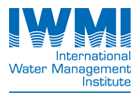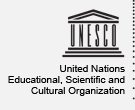Presentations 2016
Parker, Timothy
Presentation Title
Groundwater Management in Mexico – Embarking on New Horizons?
Institution
Parker Groundwater Management
Presentation
Profile Picture
Abstract
The main law governing water resources management in Mexico is the National Water Law of 1992, which lays out the top-down key legal functions and responsibilities of the National Water Commission (CONAGUA). CONAGUA's mission is to manage and preserve national water resources, working with society, to achieve water sustainability. CONAGUA administrates major federal programs to support investments in water supply, sanitation, irrigation, and manages key hydraulic facilities that meet most of the water demand in Mexico City. CONAGUA also owns and operates most dams in Mexico and the country's water monitoring network. The state Water Commissions are autonomous entities that generally fall under the authority of the State Ministry of Public Works. Their responsibilities and authorities vary between states and include water resources management, irrigation, water supply and sanitation services. Besides CONAGUA and the state Water Commissions, other entities including the Ministry of Finance, the Federal Congress, State Governments and State Congresses, Ministry of Environment and Natural Resources are important policy-makers in the sector.CONAGUA is responsible for issuing water use permits and levying groundwater extraction charges to help manage the demand versus supply. However, the total volume of water for which permits have been granted exceeds the total supply in some regions. Water resource pricing through extraction charges is carried out on the basis of the Federal Rights Law, which classifies the country in nine water scarcity zones. However, the major water user, agricultural, is exempt and charges are paid only by industry and municipal users, which considerably limits the effectiveness of the charge as a tool for water demand management.Through amendments of the National Water Law in 2004, two new entities were created intended to provide more local bottom up responsibilities and involvement: Basin Councils and Basin Agencies. The 26 basin councils created are advisory bodies that include representatives of the federal government, state and municipal governments, with at least half the council representing water users and Non-governmental organizations. The basin agencies are local decision-making bodies and regional administrative branches of CONAGUA.Despite progress and many achievements, Mexico still faces significant water resources challenges not uncommon to much of the modern word, including: 1) Increasing water scarcity2) Over-exploitation of freshwater resources, especially groundwater3) Increasing water quality degradation4) Sustainable water industry funding and finance 5) Modernization of facilities and services6) Improving agricultural irrigation efficiency7) Strengthening of local water institutions8) Climate change adaptation to periodic droughts and floodsRecognizing the need for further progress and to improve groundwater management, CONAGUA made the decision to begin work on groundwater management policy principles to use as a framework to amend the water resources law in the near future. The dialogue on developing groundwater management policy principles began in late 2015 and was continued through two working sessions at the Ninth International Symposium on Managed Aquifer Recharge (ISMAR9) in Mexico City in June 2016. This presentation will provide outcomes of the groundwater management discussions of ISMAR9, including the draft policy principles for groundwater management in Mexico.
|












